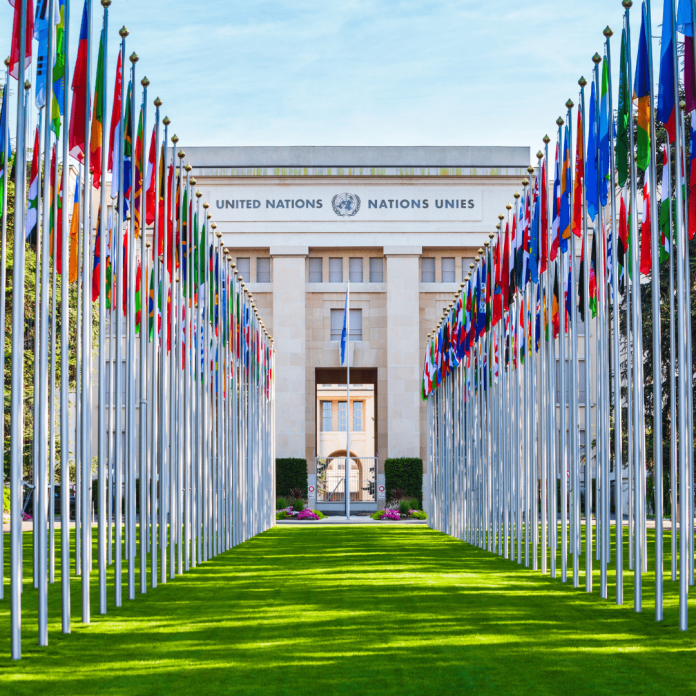In the discourse surrounding global development, few topics carry as much weight and urgency as sustainability. As we stand on the threshold of a new era filled with environmental challenges and socio-economic disparities, the call for sustainability resounds louder than ever. Dennis Francis, the President of the United Nations General Assembly (UNGA) advocates for sustainability as the linchpin for 21st-century development.
In his recent address, he articulated a vision where sustainability serves as the guiding principle shaping the trajectory of global progress.
Gone are the days when development could be pursued at the expense of the environment or marginalized communities. Francis asserts that sustainability must be the anchor upon which all development efforts are moored, ensuring that growth is not only prosperous but also equitable and environmentally responsible.
Central to Francis’s advocacy is the recognition that sustainability encompasses a broad spectrum of concerns, ranging from energy and economy to social equity and environmental conservation. It is not merely about implementing green technologies or reducing carbon emissions; rather, it is about fostering a holistic approach that addresses the interconnected challenges facing humanity and the planet.
Read also: Responsible Sourcing Initiatives In the Global South
One cannot discuss sustainability without acknowledging the existential threat posed by climate change. Rising temperatures, extreme weather events, and melting ice caps are just a few of the harbingers of a planet in distress. Francis emphasizes the urgency of mitigating climate change through decisive action, including transitioning to renewable energy sources, implementing carbon-neutral policies, and enhancing climate resilience measures.
Sustainability extends beyond environmental responsibility to encompass social and economic dimensions. Francis advocates for inclusive development that leaves no one behind, particularly marginalized communities and vulnerable populations. This entails equitable access to resources, opportunities, and essential services, thereby fostering social cohesion and reducing inequalities.
At the heart of his message is the conviction that sustainability is not a luxury reserved for affluent nations but a fundamental human right. Every individual, regardless of nationality or socio-economic status, deserves access to clean air, safe water, nutritious food, and a healthy environment. By prioritizing sustainability, we uphold our collective responsibility to safeguard the well-being of current and future generations.
The United Nations plays a significant role in advancing the sustainability agenda through initiatives such as the Sustainable Development Goals (SDGs). The SDGs provide a blueprint for achieving a more sustainable and equitable world by 2030. Francis highlights the importance of aligning national policies and international cooperation with the SDGs to accelerate progress towards a sustainable future.
In addition to policy frameworks, Francis emphasizes the importance of individual and collective action in driving sustainability forward. Whether it is advocating for renewable energy, reducing consumption and waste, or promoting eco-friendly practices, every individual has a role to play in advancing sustainability. By mobilizing civil society, businesses, and governments, we can catalyze transformative change and build momentum towards a more sustainable world.
One of the key challenges in mainstreaming sustainability is overcoming entrenched interests and inertia. Industries reliant on fossil fuels, unsustainable practices, and short-term profit motives often resist change, citing economic concerns or technological barriers. Francis acknowledges these challenges but remains steadfast in his belief that the benefits of sustainability far outweigh the costs. By investing in green technologies, fostering innovation, and creating green jobs, we can unlock new opportunities for economic growth while safeguarding the environment.
Francis also recognizes the importance of international cooperation in addressing global sustainability challenges. Climate change, biodiversity loss, and environmental degradation are transboundary issues that require collective action and solidarity among nations. Through multilateral agreements, partnerships, and knowledge-sharing, countries can pool their resources and expertise to tackle shared challenges and achieve common goals.
Dennis Francis’s advocacy for sustainability can chart a course towards a more prosperous, equitable, and resilient future by placing sustainability at the forefront of 21st-century development. Whether through policy reforms, grassroots movements, or technological innovations, the journey towards sustainability requires collective effort and commitment.




